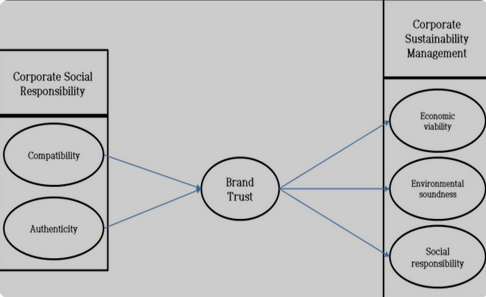Corporate Social Responsibility (CSR) refers to a business practice that involves initiatives and activities designed to benefit society beyond the direct interests of the company. These initiatives often focus on areas such as environmental sustainability, social justice, ethical business practices, and community development. When it comes to consumer trust, CSR can play a significant role in shaping perceptions and influencing consumer behavior. Here are some key points to consider regarding the relationship between CSR and consumer trust:

Positive Impact on Reputation:
Companies that engage in CSR activities often build a positive reputation and image in the eyes of consumers. This positive perception can enhance trust as consumers are more likely to support and buy from companies they see as socially responsible.
Transparency and Accountability:
Transparency in CSR efforts is crucial. Companies that are open and honest about their social and environmental initiatives demonstrate accountability. This transparency can contribute to building trust with consumers who appreciate honesty and authenticity.
Ethical Business Practices:
CSR often involves adhering to ethical business practices. Companies that prioritize ethical behavior in their operations, supply chains, and interactions with stakeholders are likely to gain the trust of consumers who value such principles.
Environmental Stewardship:
With an increasing focus on environmental issues, companies that adopt sustainable and eco-friendly practices are viewed more favorably by consumers. Being environmentally responsible can lead to increased trust among consumers who prioritize sustainability.
Community Engagement:
CSR initiatives that involve community development, support for local causes, and philanthropy can create a positive perception of a company as a responsible and caring entity. Consumers often appreciate companies that actively contribute to the well-being of the communities in which they operate.
Competitive Advantage:
CSR can serve as a competitive advantage. Consumers may choose products or services from companies with a strong CSR commitment over those from competitors who do not prioritize social responsibility.
Long-Term Relationships:
Building trust through CSR efforts can contribute to the development of long-term relationships with consumers. When consumers believe that a company is committed to making a positive impact on society, they are more likely to remain loyal to that brand.
Mitigating Risks:
Companies that actively address social and environmental issues through CSR may mitigate potential risks related to negative publicity, boycotts, or legal challenges. This proactive approach can help maintain consumer trust even in challenging situations.
In summary, corporate social responsibility can have a significant impact on consumer trust. Companies that integrate ethical and socially responsible practices into their business operations are more likely to build positive relationships with consumers and gain their trust over the long term.
